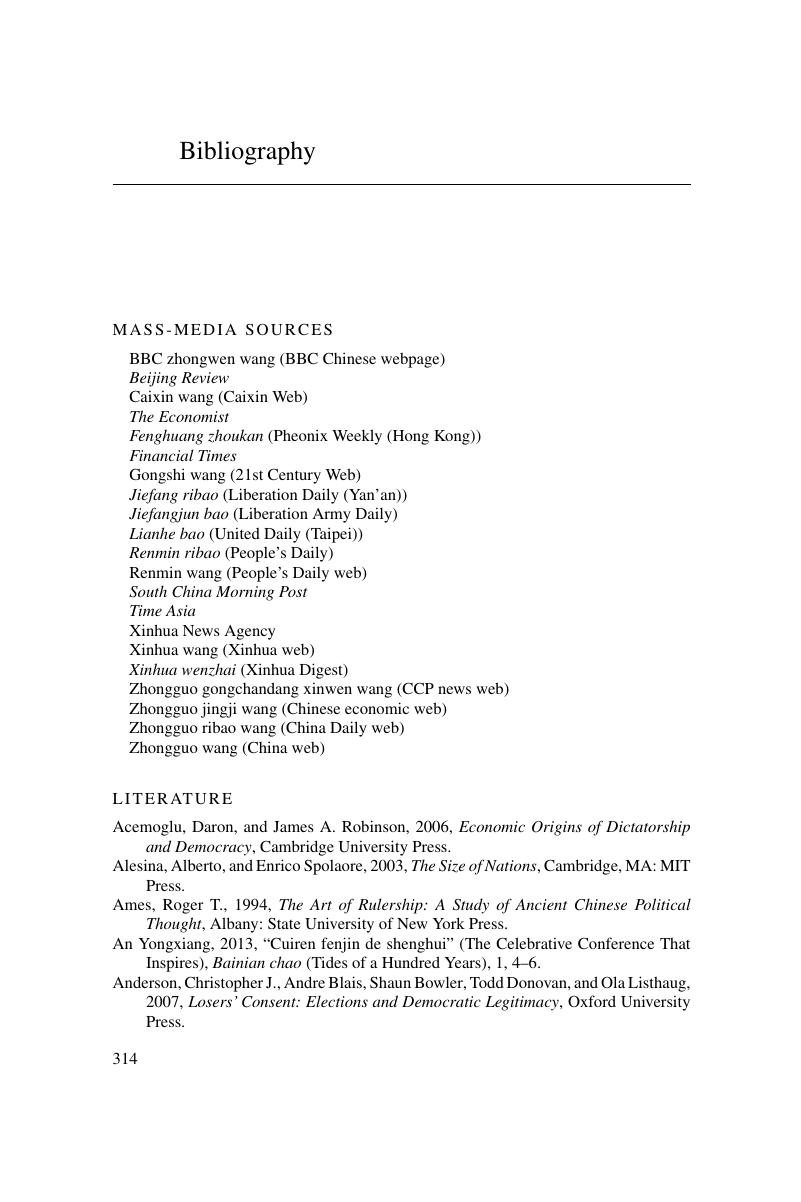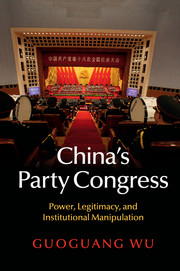Book contents
- China's Party Congress
- China's Party Congress
- Copyright page
- Dedication
- Contents
- Tables
- Book part
- 1 Introduction: China's Party Congressas the theater of power
- 2 Institutions manipulated, legitimacy ritualized: a theory of authoritarian legitimization
- 3 “Meeting for unity and victory”: the political art of running the Party Congress
- 4 Between political principleand the practice of power: the making and remaking of the Party platform
- 5 Norms versus operations: the Party Constitutionin political configuration
- 6 Electionsas instruments of autocracy: the essence and nuisance of formalistic voting
- 7 Conclusion
- Bibliography
- Index
- References
Bibliography
Published online by Cambridge University Press: 05 October 2015
- China's Party Congress
- China's Party Congress
- Copyright page
- Dedication
- Contents
- Tables
- Book part
- 1 Introduction: China's Party Congressas the theater of power
- 2 Institutions manipulated, legitimacy ritualized: a theory of authoritarian legitimization
- 3 “Meeting for unity and victory”: the political art of running the Party Congress
- 4 Between political principleand the practice of power: the making and remaking of the Party platform
- 5 Norms versus operations: the Party Constitutionin political configuration
- 6 Electionsas instruments of autocracy: the essence and nuisance of formalistic voting
- 7 Conclusion
- Bibliography
- Index
- References
Summary

- Type
- Chapter
- Information
- China's Party CongressPower, Legitimacy, and Institutional Manipulation, pp. 314 - 348Publisher: Cambridge University PressPrint publication year: 2015



